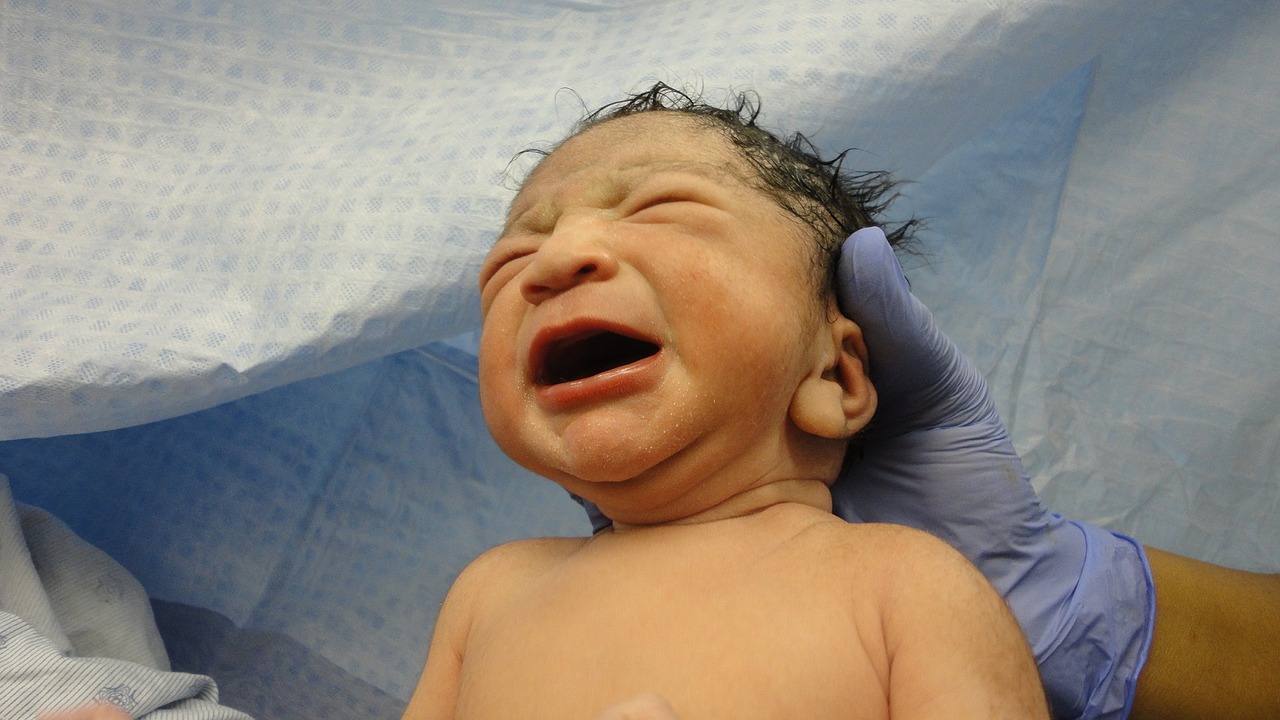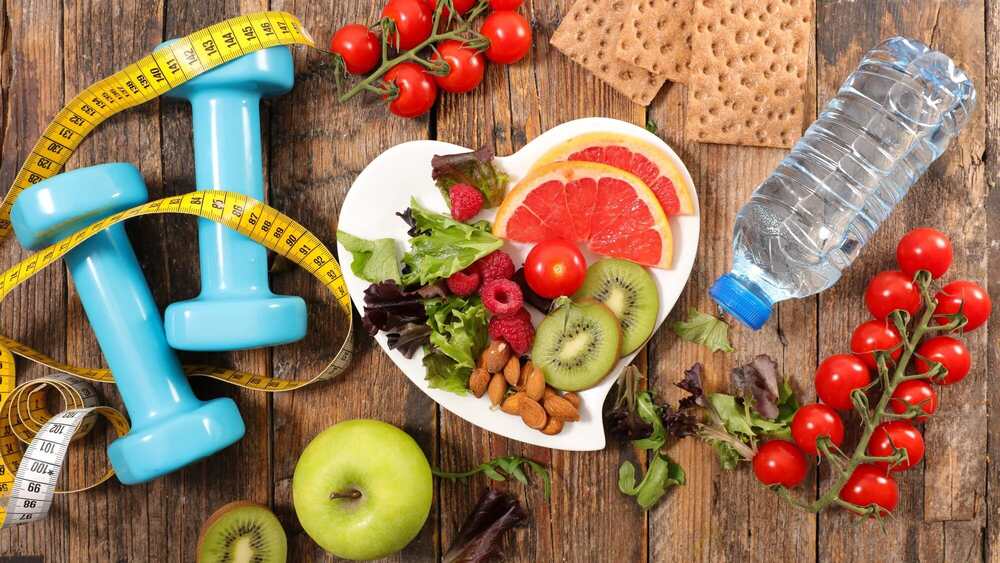
Parents do everything to provide a healthy and safe environment for their kids. However, sometimes even after many efforts, a child develops nutritional deficiencies. In such cases usually parents especially mothers blame themselves or feel guilty for not being responsible enough.sni
Dr Faiza Rehman, a pediatrician based in Islamabad says that nutritional deficiency is a condition that develops when body does not get the right amount of nutrients and does not absorb the necessary amount of nutrients. These nutrients can be obtained through diet or supplements. There are different signs and symptoms which can indicate the problem. sni
Recognizing the problem
Vitamin A deficiency
Vitamin A deficiency can lead to dark circles or eye bags, dry eyes, eye inflammation, weak eyesight or night blindness. Inability to fight against infections, gastro and respiratory issues are also linked to vitamin A deficiency.sni
Vitamin B12 deficiency
This can cause delayed development, weakness, tremor, fits, poor weight gain and poor motor skills. Language and speech problems, low IQ, anemia and constipation are also related to insufficiency of vitamin B12.sni
Vitamin C & D deficiency
Gums and teeth problems, fatigue, muscle and joint pain and nose bleeding occurs due to vitamin C shortage. A child deficit in Vitamin D will have muscle weakness, joint pains and bone fractures.sni
Fragile or dry hair are due to protein, iron and fatty acid absence and similarly omega 3 fatty acids deficit can cause poor memory. Crankiness may otherwise normally mean the child needs a nap but can also occur when there is lack of fats or omega 3 acids as they are mood stabilizers.sni
Magnesium & zinc deficiency
Brittle nails may mean magnesium and zinc deficiency. Poor healing is also because of zinc shortage. Other signs of magnesium shortage include cold hands, fatigue, depression, asthma, insomnia, hormonal imbalance and headaches or migraine. Nausea and constipation can also occur due to magnesium deficiency.sni
Iron deficiency
Unexplained fatigue in children is occasionally because of over exertion. However, it is also an indication of iron deficiency. Moreover, pale skin, weakness, rapid heartbeat and low appetite occur due to anemia; an iron deficiency.sni
Other signs
Hyperactivity in kids is due to poor eating habits. Throat trouble may be due to thyroid problem, which means there is iodine deficiency or sometimes tonsils.sni
Unexplained weight loss, increased infections and muscle weakness indicates lack of protein. Low blood sugar means carbohydrate intolerance or chromium deficiency. Obesity is also related to malnourishment or lack of healthy and balanced diet.sni
Overcoming deficiencies
The body is satisfied only when it receives a balanced diet. Poor dietary habits and lifestyle can ruin the child’s health and cause serious issues. Therefore, these deficiencies must be met properly. There are diverse food groups that include minerals, iron, vitamins, fats, carbohydrates, protein, zinc, magnesium, calcium and omega-3 fatty acids. Different food groups have different nutrients.sni
Iron
Iron is an essential element for growth and development of body structure. Anemia, caused by its deficiency can occur at any level of growth. A blood test can confirm the problem. Untreated iron deficiency in children can cause physical and mental delays.sni
Beans, pulses, fish, red meat, nuts, chicken and dark green leafy vegetables are rich in iron. Doctors can also prescribe iron supplements to meet the deficiency. Supplements should be taken on empty stomach or with small amount of food. Avoid giving it to children with milk or caffeinated drinks because both prevent iron absorption. Vitamin C, on the other hand can help absorb iron better. So taking orange juice can help.sni
Vitamin C
Vitamin C cannot be made by human body. It is required to form collagen, which is important for the maintenance and repair of different tissues including skin, bones, cartilages, teeth, blood vessels, ligaments and tendons.sni
It is found in fruits like oranges, lemon, black current, strawberry, raspberry, watermelon, grape fruit and kiwi. It is also present in vegetables like red and green pepper, cauliflower, tomatoes, spinach, potatoes and cabbage. The daily dose depends on gender, age and level of shortage in a child. Vitamin C supplements can also be prescribed by the physician.sni
Vitamin A
Vitamin A is found in liver, fish, milk, cheese, cream, butter, carrots, sweet potatoes, lettuce and apricots.sni
Vitamin B12
Vitamin B12 deficiency causes a number of disorders ranging from mild to severe. It can also be tested through blood test. It is present in meat, fish, nuts, wholegrain, dairy products, eggs, pulses, bananas, avocado, milk, liver and dark green vegetables.sni
Vitamin D
Vitamin D is required equally before and after birth for bone growth and development. Sunlight is the major source of this vitamin. But can also be found in liver, egg yolk, fish and mushrooms. It helps to absorb calcium as well. Its deficiency leads to bone disease known as rickets.sni
Protein & zinc
Protein builds, repairs and maintains body tissues. Its sources are meat, eggs, seafood, grains, nuts and dairy products. Foods like meat, eggs, nuts, cheese and grains are good sources of zinc too.sni
Magnesium
Magnesium is important for children to keep bones strong and heart rhythmic. It also supports the immune system and nerve function. Its best sources are green leafy vegetables, whole grains, cashews, peanuts, oat, yogurt, banana and beans.sni
Omega-3 fatty acid
Omega-3 fatty acid is important for health but the body cannot make them. Seafood is its best source. It is necessary for brain function and for normal growth and development.sni
Carbohydrates
Carbohydrates give energy to the body. Their deficiency reduces stamina, causes blood clotting, nausea and bad breath. They are found in potatoes, cereals, crackers, cakes, flours and jams.sni
There are different misconceptions related to nutritional deficiency. For example, some say that too much snacking may make your child feel full therefore they tend to skip main meals and miss out on the necessary nutrients. However, the only constant refill your child requires is water. Do not behave as if it is the end of world if a child is not taking two cups of milk daily. There are a plenty of other options of calcium intake. Also, avoid highly processed, sugary and preservative foods and introduce your child to foods with all flavors and textures.sni










